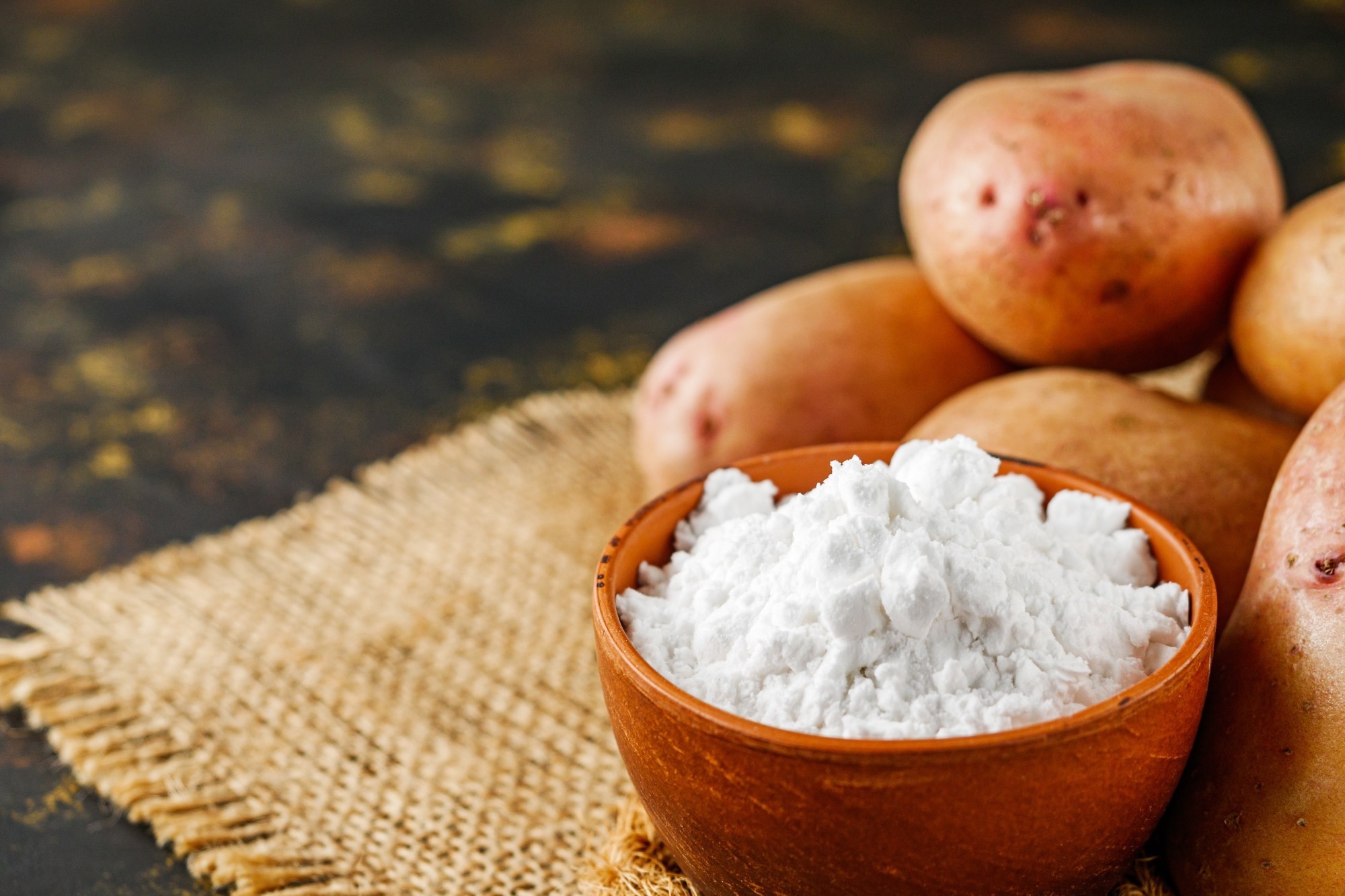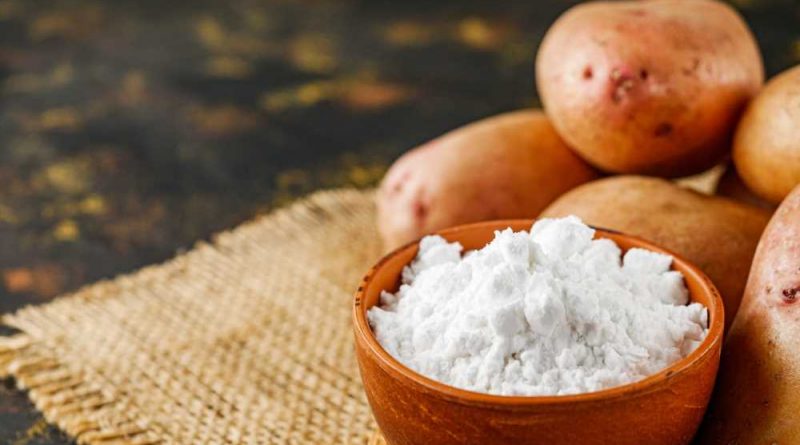Resistant potato starch usage found to be feasible and safe for hematopoietic stem cell transplantation patients
In a recent study published in Nature Medicine, researchers evaluated the feasibility of a dietary prebiotic intervention, resistant potato starch (RPS), to modify gut microbial metabolism among hematopoietic stem cell transplantation (HCT) patients.
 Study: Feasibility of a dietary intervention to modify gut microbial metabolism in patients with hematopoietic stem cell transplantation. Image Credit: Narsil/Shutterstock.com
Study: Feasibility of a dietary intervention to modify gut microbial metabolism in patients with hematopoietic stem cell transplantation. Image Credit: Narsil/Shutterstock.com
Background
Changes in the gut microbiome and metabolites could lower acute graft-versus-host disease (GVHD) severity following allogeneic HCT.
Prebiotic starches that resist breakdown by host enzymatic substances but are digested by particular gut bacteria could affect the composition of microbiome-derived metabolites.
Nevertheless, it is unclear whether prebiotic administration could rationally affect the gut microbiota for therapeutic benefit in allogeneic HCT patients.
About the study
In the present study, researchers investigated the feasibility of modifying gut microbiota using RPS dietary intervention to reduce human GVHD after allogeneic HCT and promote microbes that produce short-chain fatty acids (SCFAs) like butyrate, despite HCT-associated medication usage, including antibiotics.
The single-arm, prospective, single-center study was conducted between April 26, 2017, and September 30, 2018. Ten adults undertaking human leukocyte antigen (HLA)-matched related donor (MRD) myeloablative hematopoietic stem cell transplantation were recruited for analysis.
The participants were given 20 grams of RPS orally daily for the initial three days and twice daily from day -7 onward until day 100 following allogeneic HCT. The primary objective was to test RPS feasibility and impact on gut microbes and metabolites, including butyrate, a short-chain fatty acid. Serological metabolites were evaluated in the exploratory analysis.
A target of 60% or higher for individuals to adhere to 70% or more of the scheduled doses was predetermined to assess feasibility. Blood and stool samples were obtained from the participants at study initiation (day −7.0), nadir (days 5.0 to 7.0), engraftment (after two weeks), and after 100 days of intervention.
Targeted metabolomic analyses were performed to evaluate the impact of RPS on gut microbes by high-performance liquid chromatography (HPLC) and quantify propionate, butyrate, and acetate levels. Mass spectrometry (MS) was performed to determine the effects of RPS on serological SCFA concentrations.
Further, 16S ribosomal ribonucleic acid (rRNA) gene sequencing of the fecal microbiota deoxyribonucleic acid (DNA) was used to evaluate the impact of the intervention on the gut microflora.
All individuals received regular GVHD prophylaxis, including methotrexate and tacrolimus. In addition, they received antibiotic prophylactic therapy (levofloxacin) and neutropenic fever therapy, including 90% cefepime or 10% aztreonam with vancomycin intravenously.
However, antibiotic prophylactic and neutropenic fever therapies were discontinued during engraftment.
The historical control group included individuals from the same center who underwent allogeneic HCT between July 6, 2016, and June 23, 2017, were similarly conditioned, and received similar antibiotics and immunological prophylaxis.
Adverse events occurring among RPS recipients and the historical controls were documented using the Common Terminology Criteria for Adverse Events (CTCAE) criteria.
The team excluded individuals with inflammatory bowel disease (IBD) patients, those with prior gastric bypass surgery or active Clostridium difficile infections, those actively participating in other GVHD prevention trials, and psychological or physical conditions that could influence the findings.
Results
The median values for participant age, neutropenia duration, percentage dose taken by individuals, and percentage of fecal samples obtained from the participants were 57 years, one week, 84%, and 93%, respectively.
The predetermined feasibility target of ≥70% adherence to the doses in at least 60% of patients was met; eight participants (80%) were administered ≥70% of the doses.
Fecal butyrate levels were significantly higher when the study participants were on RPS than when they were not (9.9 mmol/kg vs. 6.6 mmol/kg, respectively). Longitudinally significant changes were observed in serological metabolites at the nadir and engraftment time points compared to baseline, but not at day 100, in line with gut microbial changes.
Among RPS recipients, the dominant serological metabolites showed higher stability than historical controls, with statistically significant differences at engraftment. There were no RPS-related adverse effects or toxicities.
One participant developed biopsy-confirmed stage 1.0 acute gastrointestinal graft-versus-host disease. Only two individuals received intravenous cefepime for workup-negative neutropenic fever during engraftment.
The RPS recipients showed preserved or increased alpha diversity, whereas historical controls demonstrated reduced microbial diversity at nadir; however, by three months following allogeneic HCT, there was an increase in alpha diversity.
Non-significant changes were observed among butyrate producers or RS degraders between RPS recipients and historical controls. However, a slight trend was observed towards better preservation of butyrate producers among RPS recipients.
Conclusion
Overall, the study findings showed that allogeneic HCT patients had significant changes in intestinal and serological metabolites, including SCFA butyrate levels; the disruption in gut microbiota was due to the reduction in microbial diversity and butyrate-producing bacteria abundance. However, RPS administration during allogeneic HCT significantly increased salutary intestinal SCFA butyrate levels.
Serological metabolites also altered, with changes beginning to resolve by three months post-treatment. RPS usage as diet-based therapy may stabilize plasma metabolic changes after allogeneic HCT. A phase 2 clinical trial is underway to evaluate its impact on GVHD.
-
Riwes, M.M., Golob, J.L., Magenau, J. et al. (2023) Feasibility of a dietary intervention to modify gut microbial metabolism in patients with hematopoietic stem cell transplantation. Nat Med. doi: https://doi.org/10.1038/s41591-023-02587-y. https://www.nature.com/articles/s41591-023-02587-y
Posted in: Medical Science News | Medical Research News | Medical Condition News
Tags: Antibiotic, Antigen, Aztreonam, Bacteria, Biopsy, Blood, Cell, Chromatography, Clinical Trial, Clostridium, Clostridium Difficile, Diet, DNA, Fatty Acids, Fever, Gastric Bypass, Gastric Bypass Surgery, Gene, Gene Sequencing, Human Leukocyte Antigen, Inflammatory Bowel Disease, Leukocyte, Liquid Chromatography, Mass Spectrometry, Medicine, Metabolism, Metabolites, Methotrexate, Microbiome, Neutropenia, Potato, Prophylaxis, Ribonucleic Acid, Short-Chain Fatty Acids, Spectrometry, Surgery, Tacrolimus

Written by
Pooja Toshniwal Paharia
Dr. based clinical-radiological diagnosis and management of oral lesions and conditions and associated maxillofacial disorders.



